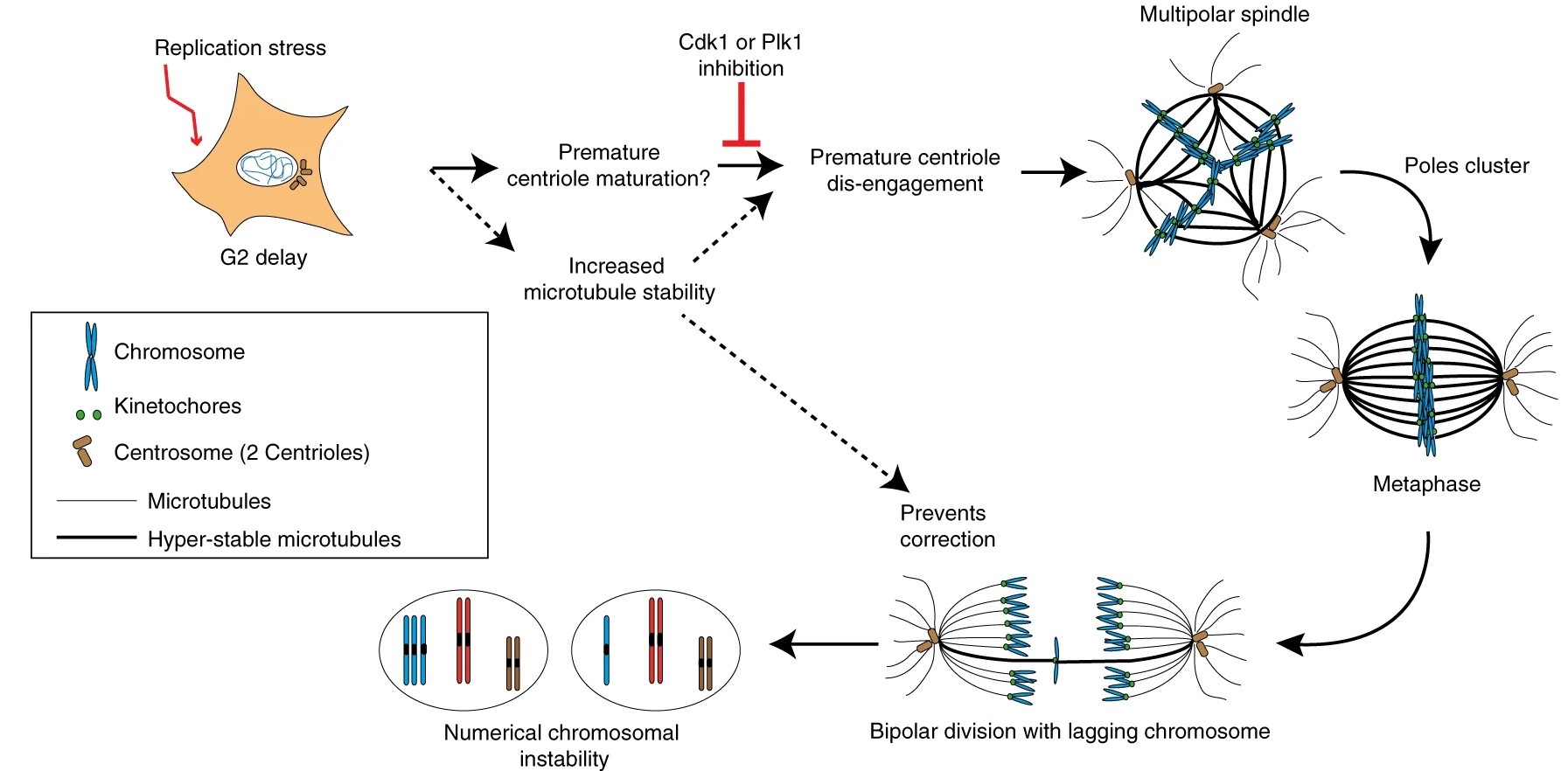Meraldi group discovered how replication stress may lead to genetic instability in cancer cells
After decades of research on cancer, there is no doubt that genetic instability leads to cancer, but many mechanisms of actions remain unclear. In their study published in Nature Communications, scientists of Prof. Patrick Meraldi group have discovered a new mechanism explaining how replication stress leads to numerical chromosomal instability.
The role of centrioles in genetic instability
Mild replication stress imposed in interphase may have impacts during the mitosis. It may lead to premature centriole disengagement and cause transient multipolar spindles. These events elevate the risk of lagging chromosomes in anaphase and lead to numerical chromosomal instability, i.e. unequal number of chromosomes between daughter cells.

Speculative model on how mild replication stress impacts mitotic progression and leads to numerical chromosomal instability (Figure 6 of Wilhelm et al. 2019 Nature Communications) .
Replication stress as a biomarker for some cancer drugs
Taxol is a common drug to treat cancers. It blocks the progression of the mitosis and leads cells to apoptosis by stabilizing microtubules and enhancing multipolar spindles. This study revealed that cells with replication stress were more sensitive to the effect of taxol. It raises the possibility that replication stress might become a general biomarker for drugs targeting centrosome clustering.
Posted by: Véronique Rosset
16 Sept 2019